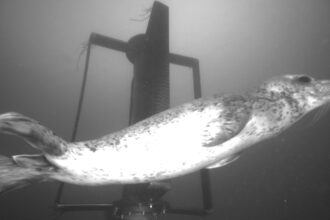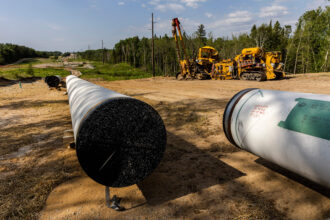Collapse of Antarctic Ice Sheet Would Swamp US Coasts (Science Daily)
If the West Antarctic Ice Sheet collapses, as many scientists believe it will, the coastlines of North America and nations in the southern Indian Ocean will face the greatest threats from rising sea levels, a new study shows. Washington, D.C., could see a 21-foot sea level rise.
US Fishery Panel Closes Arctic Areas to Fishing (The New York Times)
The North Pacific Fishery Management Council’s decision to close newly accessible areas north of the Bering Straight was the first of its kind to be made because of climate change rather than overfishing.
First City-Wide Solar Feed–in Tariffs in US Approved (Independent Florida Alligator)
Gainesville, Fla., city commissioners voted unanimously last night to allow utilities to purchase 100 percent of the excess energy generated by private solar panels, commercial and residential alike.
AFL-CIO Puts Up $1 Million for Green Jobs (Sustainablog)
At this week’s Good Jobs Green Jobs conference, the AFL-CIO announced a $1 million investment from the Working for America Institute to create a Center for Green Jobs, showing its commitment to the symbiosis between green jobs and union jobs.
Sweden Changes Course on Nuclear Power (AP)
Government officials in Sweden, a leader in renewable energy, agreed to scrap a three-decade ban on new nuclear reactors. The country is struggling to develop enough hydro and wind power to meet demands.
Chu: US, China Need Closer Climate Partnership Now (Reuters)
China and the United States must act fast and in unison on global warming if the world is to be saved from devastating change, a report drawn up in part by the new U.S. Energy Secretary Steven Chu warns.
Study Counts Up Carbon Reduction in Stimulus Plan (CNet)
If the proposed plan is implemented, its measures would cut 61 million metric tons of greenhouse gases from electricity, the equivalent of taking 13 million cars off the road, according to ICF International.
Georgia Lawmakers Propose Moratorium on New Coal Plants (Reuters)
Georgia legislators have introduced a bill that could limit utility use of certain Appalachian coal beginning in 2011 and place a moratorium on new coal plants in the state.
Environment Auditor: Canada Isn’t Tracking the Green (Red, Green & Blue)
Money flowing from Canada’s government to protect the environment may not be going to that use, and nobody would know any better, an analysis by the country’s Commissioner of the Environment shows.
Big Storm Could Be Good News for Wind Power Prices (Bloomberg)
An Atlantic storm headed for Spain could see wind turbines generating a record amount of electricity next week, which could slash local power prices to three-year lows.
Ocean Acidification from CO2 Happening Faster Than Thought (Scientific American)
A study of acidity, salinity, temperature and other data off Washington State shows the average acidity rose more than 10 times faster than predicted by climate simulations. Highly acidic water can wreak havoc on marine life.
San Francisco to Convert Nastiest Cooking Grease to Fuel (Chronicle)
San Francisco is about to become the first U.S. city to convert large batches of "brown grease" – the mucky mess left from foods cooked in oil – into biodiesel and other fuels under a $1.2 million program. The city would collect 10,000 gallons a week and convert it into roughly 500 gallons of fuel.
About This Story
Perhaps you noticed: This story, like all the news we publish, is free to read. That’s because Inside Climate News is a 501c3 nonprofit organization. We do not charge a subscription fee, lock our news behind a paywall, or clutter our website with ads. We make our news on climate and the environment freely available to you and anyone who wants it.
That’s not all. We also share our news for free with scores of other media organizations around the country. Many of them can’t afford to do environmental journalism of their own. We’ve built bureaus from coast to coast to report local stories, collaborate with local newsrooms and co-publish articles so that this vital work is shared as widely as possible.
Two of us launched ICN in 2007. Six years later we earned a Pulitzer Prize for National Reporting, and now we run the oldest and largest dedicated climate newsroom in the nation. We tell the story in all its complexity. We hold polluters accountable. We expose environmental injustice. We debunk misinformation. We scrutinize solutions and inspire action.
Donations from readers like you fund every aspect of what we do. If you don’t already, will you support our ongoing work, our reporting on the biggest crisis facing our planet, and help us reach even more readers in more places?
Please take a moment to make a tax-deductible donation. Every one of them makes a difference.
Thank you,











